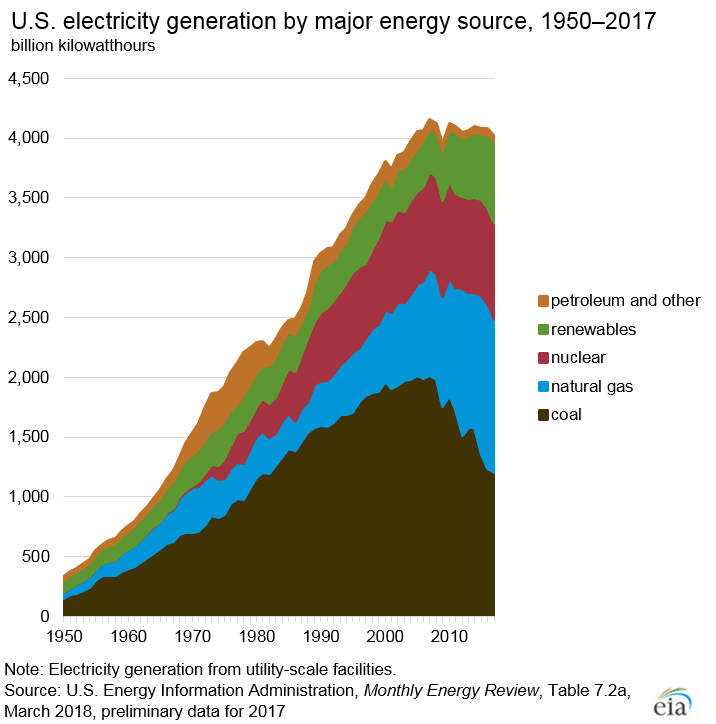JoshPlumSE
Structural
This thread is dependent on the assumption that there is a public interest in reducing carbon emissions here in the United States. That may be a big assumption for some. But, assuming it to be true, what is the most efficient way for that to be done?
To me we spend too much time arguing across political aisles about the severity and cause of global warming. I would prefer we spend more time talking about the "economics" associated with the solutions. Maybe we're wasting public funds to support projects that are intended to make us feel better, but are not particularly cost efficient if reducing carbon emissions is our goal.
My initial thoughts on the subject are the following:
1) Solar isn't all that cost effective. Expensive per kilowatt hour produced and government funding / subsidies may be better spent elsewhere.
2) Obviously Hydro power is essentially carbon free (after building the dams). But, there are only so many locations where these can be built.
3) Nuclear power is also essentially carbon free. Perhaps we need to reconsider our country's resistance to building new power plants (and forcing existing ones to decommission).
4) Conservation (i.e. forcing people to reduce power consumption) may be an option as well, but I'm mostly ignoring it. I think there are some great ways to reduce power consumption, but they ultimately put a lot of extra cost on the end consumers.... I now pay something like $10 for a light bulb that used to cost something like ten cents. I may eventually recover the cost over time. But, that assumes my kids don't accidentally break the bulb at some point over the years it takes to offset the initial cost.
5) Coal burning power plants are the worst offenders. I've seen studies suggesting that the quickest and most efficient method to reduce carbon emissions would be to replace coal burning power plants with natural gas powered turbine generators. It's definitely NOT carbon free, but if it is a cost effective step in the right direction then why aren't we doing it?
To me we spend too much time arguing across political aisles about the severity and cause of global warming. I would prefer we spend more time talking about the "economics" associated with the solutions. Maybe we're wasting public funds to support projects that are intended to make us feel better, but are not particularly cost efficient if reducing carbon emissions is our goal.
My initial thoughts on the subject are the following:
1) Solar isn't all that cost effective. Expensive per kilowatt hour produced and government funding / subsidies may be better spent elsewhere.
2) Obviously Hydro power is essentially carbon free (after building the dams). But, there are only so many locations where these can be built.
3) Nuclear power is also essentially carbon free. Perhaps we need to reconsider our country's resistance to building new power plants (and forcing existing ones to decommission).
4) Conservation (i.e. forcing people to reduce power consumption) may be an option as well, but I'm mostly ignoring it. I think there are some great ways to reduce power consumption, but they ultimately put a lot of extra cost on the end consumers.... I now pay something like $10 for a light bulb that used to cost something like ten cents. I may eventually recover the cost over time. But, that assumes my kids don't accidentally break the bulb at some point over the years it takes to offset the initial cost.
5) Coal burning power plants are the worst offenders. I've seen studies suggesting that the quickest and most efficient method to reduce carbon emissions would be to replace coal burning power plants with natural gas powered turbine generators. It's definitely NOT carbon free, but if it is a cost effective step in the right direction then why aren't we doing it?

